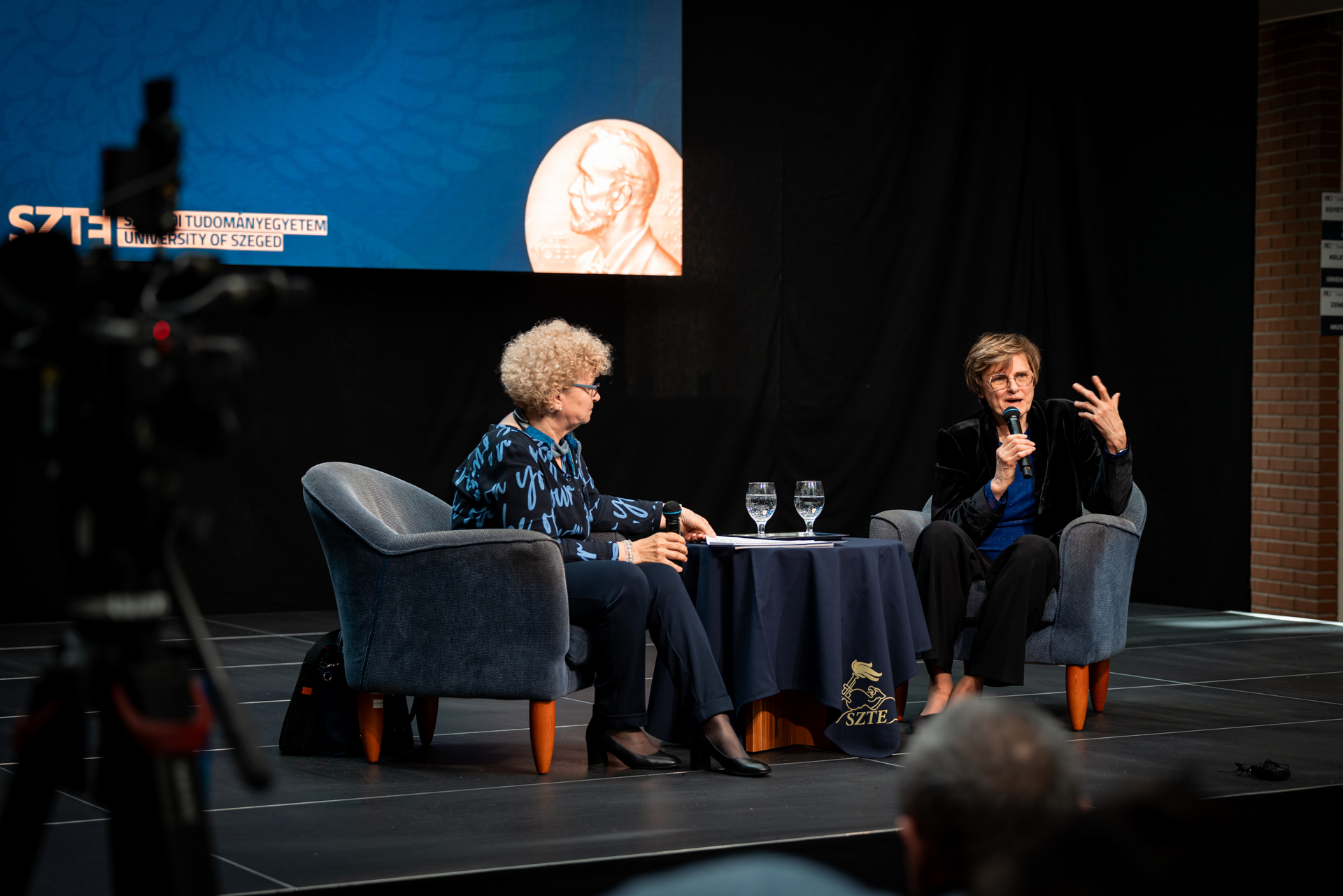
On the first day of her visit to Szeged, Katalin Karikó answered journalists' questions at the University of Szeged. The main focus of the interview was the Nobel Prize, which is on permanent exhibition at the József Attila Study and Information Centre, and the generous donation of five hundred thousand dollars that Dr. Karikó offered to inspire students and young researchers at the university. The discussion was moderated by Ilona Újszászi, the curator of the exhibition and a journalist with a long-standing, direct relationship with Katalin Karikó. Ilona Újszászi is also a member of the SZTE Directorate for International Affairs and Public Relations.
What is the responsibility of being the first Hungarian woman to receive the Nobel Prize?
Dr. Katalin Karikó: I don't know if it is a specific responsibility, I would rather say in general that the responsibility of a researcher as a woman is no different: to do what one's job is, to help others with integrity, to try to inspire the next generation, to help the other researchers with whom one works. I also think it is important to keep people informed about the progress of science, because it is up to me and to you journalists how scientific information reaches the average person.
Where is your Nobel Prize worthy of a place other than in the Klebelsberg Library of the SZTE?
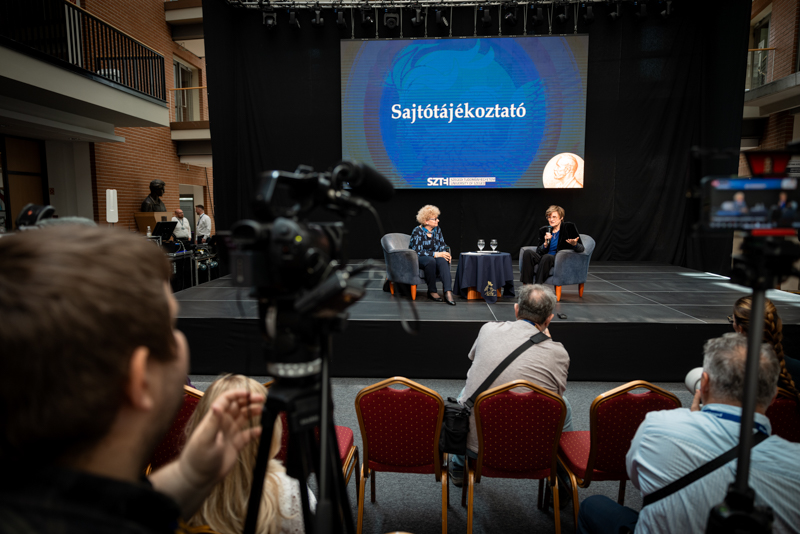
In your experience, what indicators are used to rank these 'top list' awards? What impact can an award have?
Dr. Katalin Karikó: In the case of awards such as the Nobel Prize, they consider the number of recipients of these prizes before they later receive the Nobel Prize. This establishes a certain order; for example, in America, the Lasker Prize often precedes a Nobel Prize. It's a great honour, of course, but I would add that awarding prizes is still subjective in some ways. So if you never receive any prizes, don't despair—I didn't receive any for forty years and managed just fine without them. It's not worth working for the prize; it's worth working to understand something and then helping people based on that understanding. That is a much bigger goal!
For me, a moment of greater value than the Nobel Prize was when I received a letter from a nursing home. They informed me that after the first vaccination, although a resident had fallen ill, no one had died. Previously, 30 percent of the elderly had died from COVID-19 at that nursing home. Everyone was fearful, and they finally wrote to me to share that they had gotten through the difficult period. Even now, my voice softens when I think about all those elderly people. Their families couldn't be with them due to restrictions, and it was heart-breaking to think they had to face such challenges alone. And in the end, nobody died!
To what extent can the Nobel Prize spectacularly influence the University of Szeged's position in world rankings?
Dr. Katalin Karikó: Once again, I have an unexpected answer for you! I've never been at the top of the rankings myself; for instance, I've never published 100 articles in my life, and my citation count is not over 100,000 but around 20,000. Some articles go unnoticed, while others change the world—and there's only one of those. Rankings like these are relative, and I don't pay much attention to them personally. However, knowledge needs to be measured somehow, and one measure is the number of publications and citations. To answer your question: it will certainly improve the University of Szeged's position.
The students of Szeged are also curious to know how the Nobel Prize has changed the life of the laureate.
Dr. Katalin Karikó: I've already spent most of my time in the last three years in airports, on airplanes, visiting cities I've seen nothing of. And what happened after the Nobel Prize was that I got even more invitations. But now I go to far fewer places, because I concentrate on research, which is a priority. My friend and colleague János Ludwig, a chemistry graduate from the University of Szeged, told me that if the difficulties have not stopped me from doing what I do best as a researcher so far, he hopes that this much recognition will not stop me either. I'm sticking to it: I'll travel less and concentrate more on my work.
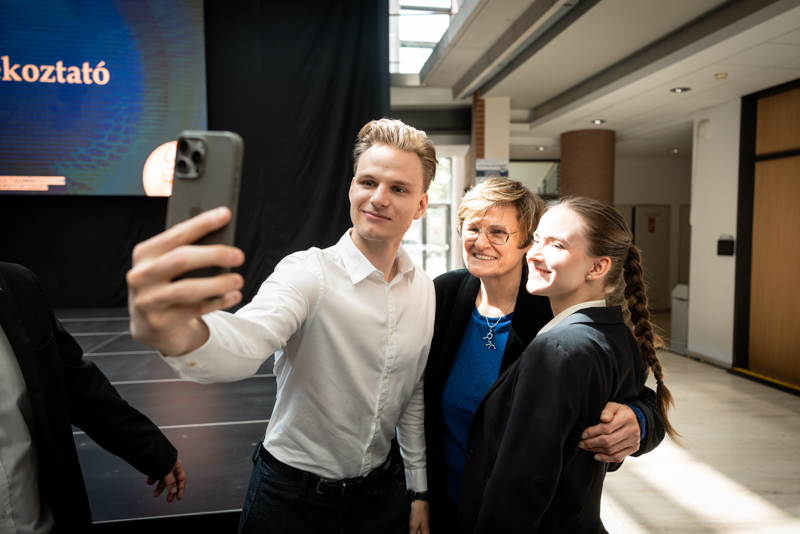
In the memoir, 'Breaking Through - My Life and Science,' it's mentioned that her Nobel Prize was both a blessing and a curse. Why do you see it this way?
Dr. Katalin Karikó: That's how I would describe it, echoing János Selye's sentiment that being a researcher is both a blessing and a curse. It's a blessing because we can find solutions to various complex problems, which can ultimately help people. The 'curse' is that I can't stop. I could easily sit back and relax at my age, having achieved results, but I'm continually driven by the desire to explore ideas that can benefit others. I find it difficult to do anything else; it's my passion. While it might seem like a 'curse' from the outside, in reality, it's a positive force.
Professor, you are donating the Nobel Prize money to the University of Szeged. What is the purpose behind your decision? Can you provide us with more details?
Dr. Katalin Karikó: If you've read the book, you'll know that researchers like us have never had much money, so having some is good, although it's better not to have too many financial concerns. Here at the University of Szeged, the prize money could be used more meaningfully to inspire young people and educators. I thought that each year, a small committee could decide which faculty member should receive the prize based on student suggestions and which student should receive it based on faculty recommendations. As long as I'm able, I'll come and present these awards every year! It's also inspiring to be here! If we give out ten thousand dollars a year, five hundred thousand will last for 50 years; and at most, someone else will take over at the end... If you have any other suggestions, I'd love to hear them!
As a student, how would you have felt about a similar award? What really motivates a student to do better: a prize like this or something else?
Dr. Katalin Karikó: Not the prize for me, but maybe that's what inspires others. The one that inspired me the most was the Jermy Gusztáv Award, which I received as a student at the Móricz Zsigmond High School in Kisújszáll. On a side note: it was awarded to me the year before it was awarded to the elderly Albert Szent-Györgyi; many people don't know this, although this prize is also on display. What was very important for me was when my high school teacher, Albert Tóth, told me, 'Kati, you can become a researcher'. He told me so many times that I ended up believing him and thinking that I could find something new every day. That's not how research is done, but I thought something similar and was inspired to be as good as I could. When I started university, others had already specialized in Chemistry in high school, while I didn't even know which end of a pipette to use. I learned English as I went along. I felt behind and believed I needed to catch up with my peers. I worked hard until I did. Additionally, I was motivated by my dream of working at the Biological Research Centre in Szeged.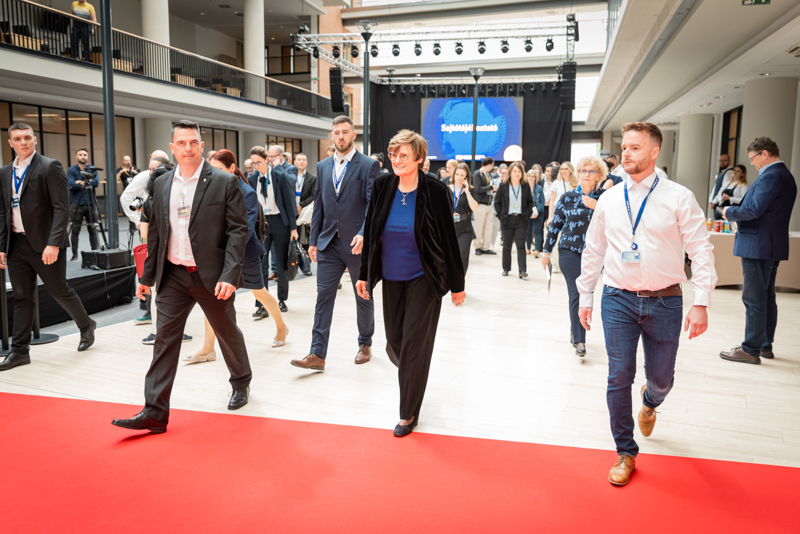
And then there's the question about mRNA. mRNA therapy has expanded to the development of vaccines against other infectious pathogens and cancer. It is being tested in a growing number of applications, including the treatment of diseases that are currently incurable. What is the status of this research? What are the expected results, and when can they be achieved?
Dr. Katalin Karikó: Currently, there are over 250 clinical trials using in vitro produced mRNA. The most advanced developments are vaccines against viruses, such as the flu vaccine, which are already in phase three of clinical trials.
Three clinical trials are underway for HIV, and there are also developments targeting the Epstein-Barr virus and Mpox (formerly known as monkeypox). For some of these diseases, either no vaccines exist, or existing vaccines, like the one for shingles, are very expensive. mRNA-based vaccines against bacteria are also in development. For instance, the Bill Gates Foundation is supporting the development of a TB vaccine, and the first volunteers have already been vaccinated. Additionally, vaccines against bacteria causing Lyme disease and other parasites, such as malaria, are currently being tested in humans. Vaccines against cancer are also made, there are cases where the antigen codes for the RNA, one of which is called shared antigen, which is present in multiple tumours; and there are individual vaccines, made from mutations that cause amino acid changes in a person's tumour. BioNTech is testing a vaccine against pancreatic cancer, while Moderna is testing one against melanoma. The results indicate that post-tumor removal vaccination significantly delays tumour recurrence.
In addition to vaccines, mRNA-based antibodies are being used in oncology. These antibodies recognize proteins on the surface of tumour cells. Using mRNA to produce antibodies is cost-effective compared to using proteins directly. While proteins derived from mRNA are affordable, proteins themselves can be expensive. Because, after all, it is not the m-RNA that is the drug, but the mRNA serves as a blueprint instructing the body to produce the protein, which then triggers the antibody response. This approach makes the drugs more accessible to the public.
Exciting experiments are underway to achieve tolerance to peanut allergies and dust mites. Additionally, a vaccine is being developed for the tick-borne bacterium Borrelia. Research has shown that a tick's saliva contains 19 types of proteins that aid in the spread of both the bacterium and the virus responsible for meningitis. In experimental studies, animals were vaccinated with a protein derived from mRNA. This induced an immediate immune response upon tick bite, preventing the bacteria from spreading.
A common advantage across these developments is the ease and cost-effectiveness of producing mRNA. If I had a sequence right now, I could create RNA from it within an hour. When introduced to cells, this RNA would produce the corresponding protein in just 15 minutes.
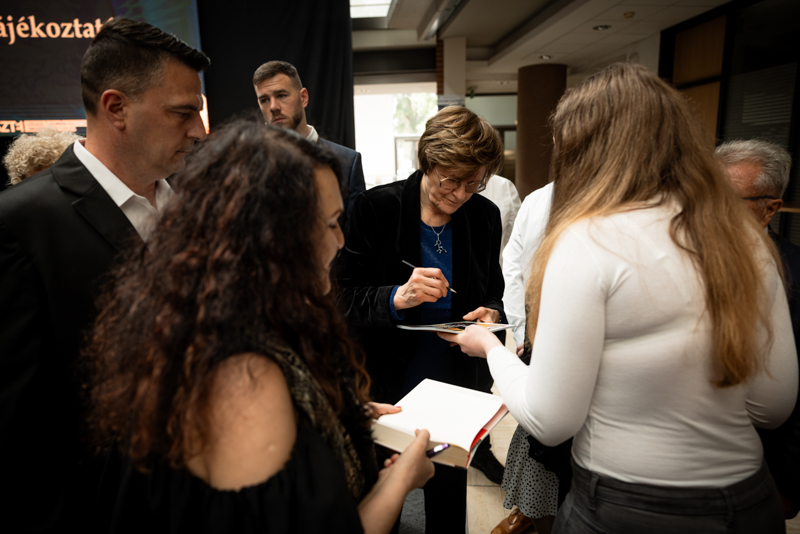
How can the University of Szeged participate in these developments, and how can local researchers and research groups contribute to this vision?
One simple idea could bring RNA research right here to Szeged! Based on innovative ideas from our young—or forever young—minds, there are numerous research avenues to explore. Doctors often have unique insights into various diseases. Collaborating with biologists who can develop these constructs allows for testing on animals to gauge results. Taking a treatment tot he clinic, typically requires a lot more, but in an academic research facility, working with a doctor on a medical problem can lead to solutions. The potential applications of mRNA are virtually limitless due to its affordability and rapid production. What we truly need are fresh ideas! Naturally, not all attempts will succeed; that's the nature of research. However, the real regret lies in not trying at all.
Written by Sándor Panek
Photo: Ádám Kovács-Jerney, István Sahin-Tóth

